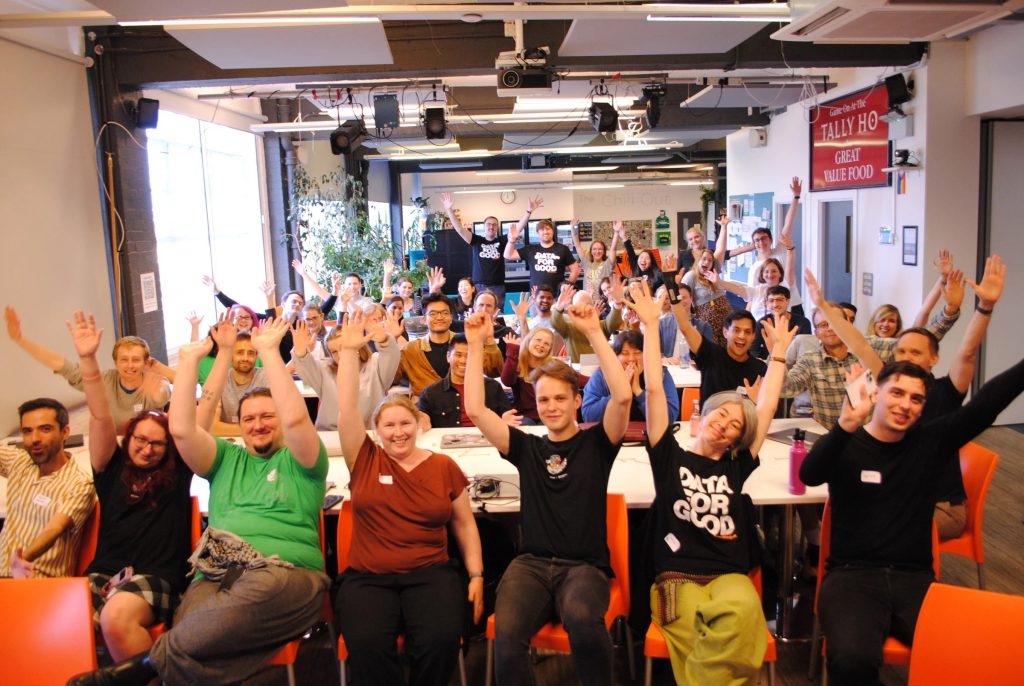Harnessing Ethics and Governance for Responsible AI at the Big Data Expo
Ethics, Governance, and Data for Good at the AI & Big Data Expo
The AI & Big Data Expo highlighted that artificial intelligence (AI) is no longer a niche subject but rather an integral part of numerous sectors. The tech conference in London attracted a diverse crowd eager to exchange knowledge and experiences surrounding AI.
One of the standout features of the AI & Big Data Expo was its range of speakers, making complex data topics accessible even to those without a scientific background. As the CEO of an organization that supports charities, it was enlightening to observe how AI and big data influence various sectors and the innovative strategies they adopt to tackle emerging challenges.
I found the discussions focused on ethics and governance particularly impactful, as they resonate with our community’s needs. It is encouraging to see a growing commitment to embed ethical considerations into AI strategy from the outset, particularly in contrast to how previous technologies were developed, often with less regard for ethical implications.
During one session, the topic of governance was explored, revealing that governments are still striving to keep pace with advancements in AI. There is a consensus on the necessity for regulation, but questions about the feasibility of such measures persist. Will the proposed EU regulations be effective? How will the legislation in the US fare? What criteria will guide technology deployment, and what consequences might arise from misuse?
As a charity dedicated to supporting other charities, we are particularly concerned about safeguarding. It’s reassuring to see that these issues are also being recognized in mainstream discussions. AI providers have not yet adequately addressed the risks associated with sensitive data management, particularly for organizations that work with vulnerable populations. There have already been instances where AI has wrongly replaced human roles, leading to harmful outcomes, such as inadequate advice provided by a chatbot in a mental health care setting.
Tech leaders and government entities must take responsibility by adopting ethical practices and creating frameworks to ensure safety. While there will always be individuals who misuse technology, there’s a growing coalition dedicated to maintaining a safe AI environment for everyone, including less-resourced organizations.
As technology continues to evolve, it’s vital for the third sector to have platforms where their voices are heard alongside those from the private and public sectors. At the AI & Big Data Expo, we represented our organization and contributed to the ‘data for good’ movement, forging valuable connections based on shared values.
We were pleased to engage with attendees, receiving insightful questions and fostering in-person discussions. Participating in this event was a rewarding experience, and we extend our gratitude to the organizers for facilitating such a collaborative environment.
For those interested in supporting our mission to bolster a thriving third sector through the application of data science, please visit our website to learn more about our efforts at DataKind UK.
At Social Action for Health, significant efforts were made to address inequities, culminating in the establishment and leadership of an award-winning social enterprise. The organizations he has guided have not only been recognized in the Charity Awards but have also achieved honors such as the Santander Social Enterprise Development Award and the Mayor of London’s Volunteering Awards.
These achievements highlight a strong commitment to fostering social change and addressing disparities within the community. The combination of leadership and innovative thinking has propelled these initiatives into the limelight, showcasing the importance of social enterprises in tackling pressing societal issues.
Artificial Intelligence and Machine Learning Insights
Machine learning is revolutionizing cloud-native container security, enhancing efficiencies and safeguarding environments. As threats evolve, the integration of advanced algorithms proves essential for maintaining robust defenses against vulnerabilities.
In the finance sector, innovative applications of machine learning are transforming traditional practices, driving efficiency, and enabling data-driven decisions. Businesses are leveraging these technologies to streamline operations, minimize risks, and enhance service delivery.
Recent investigations reveal that AI and bots are increasingly being exploited to artificially inflate music streaming numbers, raising concerns over authenticity in digital platforms. This troubling trend highlights the need for stronger regulatory oversight to protect both artists and consumers.
Lastly, collaborating with outsourced developers is becoming a strategic advantage for companies seeking to expand their capabilities without the burden of extensive hiring. This partnership fosters agility and allows businesses to tap into specialized skills that enhance product offerings.
Key Developments and Trends
Artificial intelligence continues to make significant strides across diverse sectors, leveraging data to provide actionable insights and drive growth. Its applications range from improving logistics operations to enhancing face recognition technologies, showcasing its versatility.
With these advancements, organizations are urged to stay abreast of emerging trends to fully exploit their potential. By understanding AI’s evolving landscape, businesses can position themselves to thrive in an increasingly competitive environment.
Latest Developments in AI and Technology
Reddit has taken legal action against Anthropic, accusing the company of unlawfully scraping user data to enhance its AI models.
In other news, TSMC has reported unprecedented demand for AI chips, a situation further complicated by the prevailing uncertainty surrounding Trump-era tariffs.
Additionally, OpenAI has opened an office in South Korea, marking a significant step as this region emerges as its second-largest paying market.
Stay Updated
Get our premium content and the latest tech news straight to your inbox.
United Republic of Thailand, Timor-Leste, Togo, Tokelau, Tonga, Trinidad and Tobago, Tunisia, Turkmenistan, Turks and Caicos Islands, Tuvalu, Türkiye, US Minor Outlying Islands, Uganda, Ukraine, United Arab Emirates, United Kingdom, United States, Uruguay, Uzbekistan, Vanuatu, Venezuela, Viet Nam, Virgin Islands (British), Virgin Islands (U.S.), Wallis and Futuna, Western Sahara, Yemen, Zambia, Zimbabwe, Åland Islands.
This field is for validation purposes and should remain unchanged.
Permissions (Required)
By submitting your email, you agree to our Terms and Privacy Notice.







